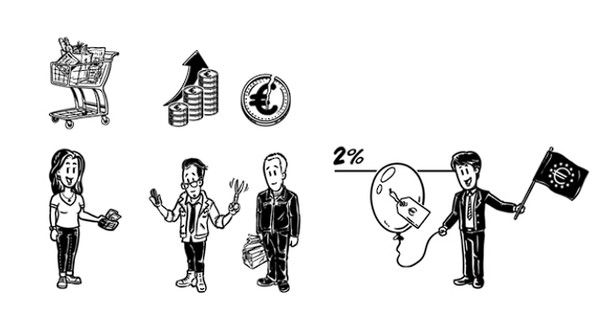Europe tricked by the USA on bitcoin
How Europe was tricked into providing regulatory frames for no one

Introduction
The European Union had grand ambitions with its new AML (Anti-Money Laundering) and MiCA (Markets in Crypto-Assets) regulations.
Since 2018 they started their army of bureaucrats to work on new regulations, in order to create a ‘secure and transparent environment’ for digital assets in the financial tech and bitcoin sectors (most of the people call this “crypto” unfortunately, but ok, we’ll overlook bitcoin and altcoins being thrown together here).
However, one specific rule, the mandatory KYC (Know Your Customer) procedure for all transactions regardless of amount (even buying a candy of 10 euro cent in bitcoin), is proving to be a dream-killer.
This zero-threshold KYC policy (pushed through by MP Paul Tang (The Netherlands) and Assita Kanko (Belgium) and their French and Spanish counterparts) is having a devastating impact on Europe's fintech scene, particularly in the bitcoin sector.
Among all the rules, this one stands out as particularly shortsighted and self-destructive.
The KYC Zero-Threshold: A Death Knell for Innovation
The intent behind KYC was understandable: preventing money laundering and "terrorism financing" (not that it was ever a big problem... studies show that only a tiny fraction of bitcoin transactions were ever used for these purposes, especially when compared to the dollar).
By requiring verification of every transaction partner, Europe hopes to discourage illegal activities, and enhance their own control over transactions.
By extending this requirement to every single transaction, even the smallest ones, the EU has created an unnecessary administrative burden, especially for smaller businesses in fintech and any company or shop that’s willing to transact with bitcoin. This way, they’re forced to use the existing bank-centered apps and payment terminals, with high cots and subscription fees and less privacy.
This regulation is like throwing the baby out with the bathwater: new firms and innovations won't just be discouraged; they'll be smothered under a mountain of paperwork before they even get started. And let's not forget, this is all done deliberately to kill one of the easiest features of bitcion / crypto: its simplicity, and the termination of a middleman (a bank or central bank in Europe’s case).
The Erosion of Privacy and Rising Costs
One of the core promises of bitcoin is the ability to conduct transactions anonymously.
The KYC zero-threshold undermines this fundamental principle.
And even if we try to find workarounds, Europe will lose out, again, because it lacks the speed and ingenuity to keep up with innovation while jobs, talent and investors will flee before Europe can reverse course away from this ill advised laws and regulations.
Then there are the compliance costs, which are prohibitively expensive for small companies and startups.
The US Got One Over on Europe
The United States has been playing a clever game with bitcoin regulation. They have dabbled with crackdowns, only to later permit mining operations and even support them.
They reversed course on the non-custodial wallets, the travel rule and mining…
Take Texas, for example, where the company "Cleanspark" ($CLSK) presented a green energy solution that received political backing.
Meanwhile, Europe has been suckered into over-regulating, thinking they could set a global standard and lead by example.
Instead, they've only managed to shoot themselves in the foot, alienate the fintech industry and scare away investors, while the US and other nations will welcome these people with open arms.
By January 2025, the truth will be out when a new US president declares that they won’t follow Europe’s lead in over-regulation. The results are already clear: Europe has lost. Companies are leaving, or simply shutting down, due to Europe’s suffocating and innovation-killing regulations.
These were crafted by people with, let's say, “limited” knowledge—some of them can barely tell the difference between a bitcoin block and a LEGO brick, or got most of their knowledge from a booklet by a smalltime sh*tcoiner.
While US politicians are embracing bitcoin and institutional investors are steadily buying more, Europe is making a fool of themselves internationally, looking like a child who got duped with some empty promises.
They tried to regulate “crypto” for the world, and will be stuck with an empty box.
The US has played it well… tagging along with Europe triggering a sort of anti-bitcoin stance, while flip-flopping all over the place until the harsh, self-destructive laws in Europe are in place.
Then, they went full (or half) pro-bitcoin and one of the their presidential candidates even made a speech ( be it a lousy one) at the Nashville bitcoin conference in 2024. Something that’s unthinkable in Europe, where the European buildings even housed a full fletched meeting of the Degrowth community, and where the political leaders never let out a pro-bitcoin stance, ever.
Conclusion:
Routing Around the Problems
Real innovators are already adapting and enhancing bitcoin and other technologies to improve privacy and scalability. This will likely render the EU's regulations moot, serving only to give the US a competitive edge. (Nice job, lobbyists!)
The real suckers here are the small group of EU commissioners who were so proud of their high salaries and status that they tried to impose a set of rules on 450 million people that would only hinder innovation and progress in their own backyard.
They failed to realize they were being played like a fiddle by the United States, demonstrating nothing but their arrogance and naivety.

Let’s hope we can quickly maneuver around this mess and implement countermeasures that allow Europe to play its proper role —not as a regulatory stickler telling the world how things should be done-
But as a place where you can work in a forward-looking sector that frees people from fiat systems, colonialism, financial discrimination and those eternal middlemen who take a fat cut of others' efforts without contributing anything themselves.
Maybe, just maybe,
this will help collapse these outdated nation-states
and their decrepit, parasitic systems, which probably were originally designed to foster a good trading zone with decent rules, and since then had become focused on stifling innovation and technological development.
Afuara!
deadeyes


